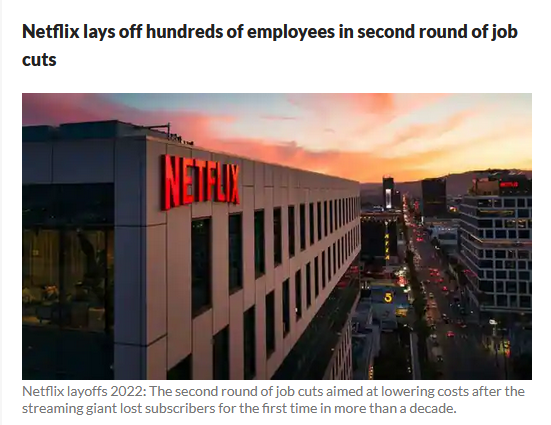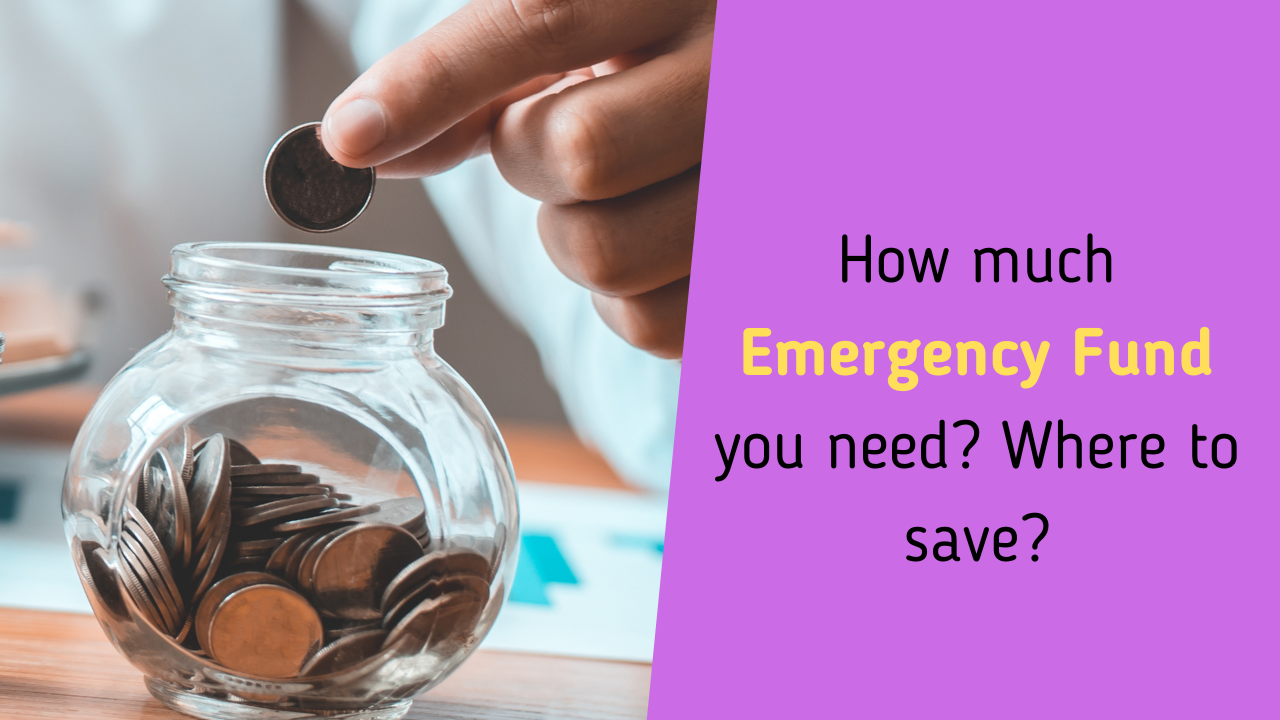Sharing is caring!
I have already mentioned the Emergency Fund in the personal finance rules discussed here. That was a basic discussion, today in this blog post you will know more about the Emergency Fund and its importance in greater detail. You will know about what is the best place to save for your emergencies whether it is Bank FD, Mutual Funds, Stock Markets (absolutely not), or a savings account.
Setting Up The Plot
Just ask a question yourself, what is your source of income? Mostly Salaried. Are you guaranteed that you are not fired from your job under any circumstances like covid, .com bubble, etc?

Netflix has laid off its employee aimed at cost-cutting.
Few other companies lay off their employees due to reasons like cost-cutting, shutdown, Restructuring, and Financial Constraints. Below is the attested image.

So do you think that government or your employer will take care of you all the time financially?
I just want you all to know that in the corporate world YOU ARE REPLACEABLE no matter what.
It is now your responsibility to take care of your financial health and you need to protect yourself and your family on rainy days. If you fail to protect yourself from emergencies then you may end up in some kind of loan, if you take a loan at an early age in your career then it affects you badly on your financial health. You can read how to get out of loans from here.
What Is Emergency Fund?
As the name suggests the Emergency Fund is the amount that you keep aside for as minimum as 3 months of your expenses in case of emergencies like Job loss or Pay loss.
The general synopsis is that you need to keep the amount that covers 3 months of expenses but it is recommended higher the better. Since 3 months is too short you need to have as minimum as 6 months.
Also, over time when you have excess cash even after your investments and expenses then you can increase the Emergency Fund to cover for 2 years. Beyond covering expenses for 2 years saving in an emergency fund is not a piece of better advice because the interest you earn on your Emergency Fund is very low.
What Expenses Your Emergency Fund Should Cover?
The Emergency Fund should cover what are the expenses that fall into your NEEDS category.
If your monthly expenses on rent, food, grocery, kids’ education bills, utility bills(Power, Fuel, Mobile), and insurance are 30,000 Rs. Your Emergency Fund should cover as minimum as 3 times to a maximum of 24 times of 30,000 Rs.
Whatever you buy on and above 30,000 Rs for your weekend parties, Gifts to Family or Friends, or lifestyle spends on new gadgets doesn’t include in Emergency Fund.
Now, coming to the important part of this blog post.
Where Exactly Save Your Emergency Fund?
1. Bank Savings Account
Bank Savings Accounts provide the most liquidity for your money. You can transfer seamlessly without any fees and delays. A Bank Savings account is one of the best options for parking your emergency money.
But the problem with Bank Savings accounts is that they have a very low-interest rate which is nearly 2-3%. If you need safety and ease of use of savings account and some extra interest then you can choose the sweep in FD option.
2. Sweep-in Fixed Deposits
It is similar to a bank Fixed Deposit, but there is no lock-in period for your money. You can easily take out your money without charges. And you can get nearly 5 – 6% in returns.
If you are saving for Emergency in Bank Account, you can simply opt for Sweep in FD, so that after a certain limit like 25,000 all the extra funds you add into your savings account will be automatically moved into your FD. so that you earn some extra interest on your money.
3. Debt Securities
There are many types of Debt Funds available, but not every fund is suitable for parking your emergency money. And most importantly there is also some kind of risk associated it mutual funds and Debt Funds have no excuse for that.
You will learn about mutual funds, their types, and which fund to choose for which kind of need in the upcoming mutual fund series.
But for now, for parking your emergency fund, you can select one of the following.
- Liquid Fund. (3 – 4%)
- Over-night Fund. (3.5%)
- Arbitrage Fund.( 4 – 5%)
- Ultra Short Duration Fund (4.5 – 5%)
Never choose other than these funds or even equity-linked mutual funds for parking your emergency fund. Why because some funds are very sensitive to interest rates, so some debt funds can give no returns to -ve returns for some time.
Note: Emergency Fund is for protection and safety. Don’t take risk with this. You can play risky in stockmarkets/real estate for wealth creation.
Disclaimer: Investments are subject to market risk. Consult your financial advisor before any financial decisions.
Where Not To Save or Invest your Emergency Fund?
1. Real Estate.
Avoid buying Real Estate property with your emergency money, or don’t assume your real estate property comes in handy when you need money.
You may not be able to sell your real estate property on time when you need urgent money. You may not find a buyer or even if you find one you may not get the on-time settlement.
2. Stock Market.
Stock markets are liquid. You can sell when you want and cash out in 2 working days. But still when it comes to emergency funds stock markets are not the best option.
There is a possibility of capital loss and no guarantees of capital protection.
3. Equity Mutual Funds
This kind of mutual fund invests your money into the stock market itself. And hence these funds inherit the risk associated with stocks. There is no guarantee for profits even though these mutual funds are managed by experts. Even you can suffer losses for some time.
You should have a doubt here since you get nearly the same interest rate as that of a Debt Fund from a Bank FD. why Debt Funds?
Why you should select debt funds to park an emergency fund?
Suppose you have saved and invested nearly 10 Lakhs in Bank FD for your two years of expenses. Suddenly with the news of a single scam within that bank, then you may not take your funds back for some time when your expenses don’t stop. If the scam happened within the bank is so severe, then your money is only insured for up to 5 Lakhs so you can only claim your 5 Lakhs instead of your savings 10Lakhs. And these scams are not new in India.

Conclusion
There is no denying that anyone can have financial emergencies at any time. So everyone needs to save for their emergencies. Usually, your emergency fund should cover your 3 months of expenses, but can extend your emergency savings to 24 months of expenses. Even savings covering 12 months of expenses is recommended but subject to the availability of excess funds even after investments it is better to enhance your financial strength by increasing your emergency fund especially when you are over 45 years old.
Savings accounts and Sweep in FDs are the best places to save for your emergency fund. Since you can’t save heavy amounts in a bank then Debt funds can help. But investing in Real Estate, Stock market, and Equity Mutual Funds will never help in emergencies.
Media Credits
All the information shared is for educational purposes only. The blog Finance Made Easy(financemadeeasy.in) and the author is not responsible for your financial decisions.
Sharing is caring!




Comments